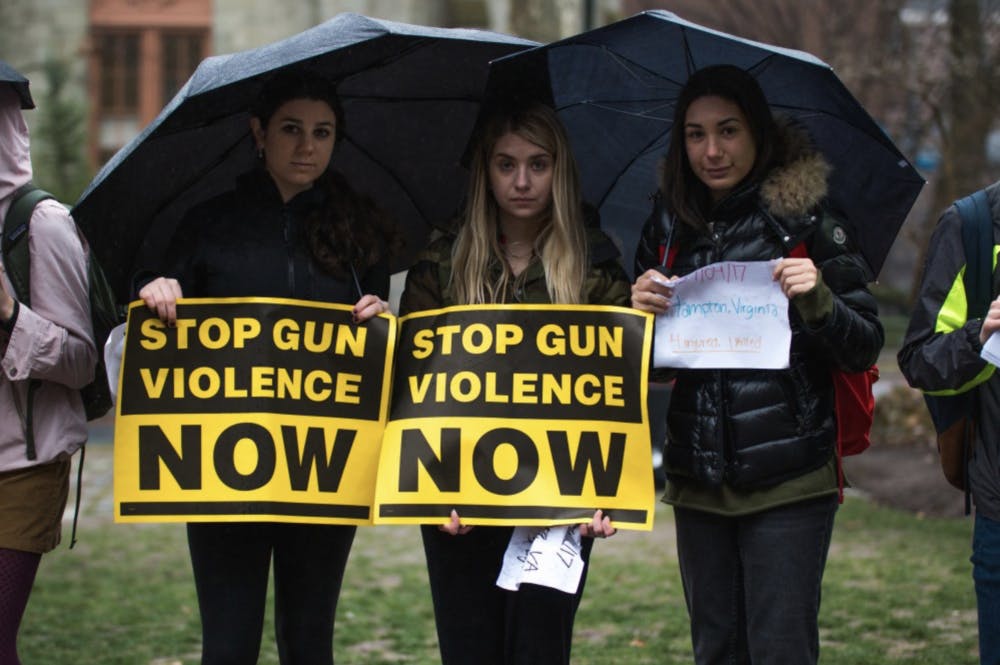When it comes to fighting gun-related violence, individual state laws may not be enough.
A recent Penn Medicine study found states with strict gun laws see higher homicide rates when they border states with looser gun laws. This suggests that movement of guns from laxer neighboring states can undermine restrictive state laws.
The study ranked all fifty states from 2011 to 2015 based on scores from the Brady Campaign to Prevent Gun Violence, which ranks states based on gun policies, gun deaths, and gun export rates. The researchers then adjusted states' scores based on the scores of their neighbors and examined how this affected homicide rates.
The researchers found that strict gun laws in neighboring states can reduce gun-related homicides more than individual state laws alone. Although California was ranked as the state with the most restrictive gun laws, for instance, laxer gun laws in Arizona and Nevada caused California to have higher rates of firearm homicides. Connecticut, however, had lower homicide rates because it borders Massachusetts, New York, and Rhode Island, which all have strict gun laws.
Notably, the researchers found that 65 percent of recovered guns in states with the most restrictive gun laws originated from other states. Surgery professor and senior study author Mark Seamon told Penn Medicine News that strict state firearm laws may be encouraging people to buy firearms in neighboring states with laxer regulations, increasing the number of guns and homicides in the home state.
“Now we have scientific evidence for what common sense previously told us," Seamon told Penn Medicine News. "The benefits of firearm laws might not be fully realized until either all states reach a certain threshold level of firearm legislation or more universal federal firearm legislation is enacted.”
Other Penn Medicine authors include Trauma/Surgical Critical Care fellows Erik Olson and Elinore Kaufman, Surgery professor Patrick M. Reilly, former Surgery professor C. William Schwab, and general surgeon Mark Hoofnagle. Preliminary results of the paper were presented at the 77th Annual Meeting of the American Association for the Surgery of Trauma Conference in 2018.
The issue of gun violence continues to plague Philadelphia, which saw over 300 homicides in 2018, a ten-year high. Meanwhile, Penn has ranked number one in safety and security for the tenth year in a row in Security Magazine’s annual higher education ranking.
RELATED:
Philadelphia responds to rising murder rates with new gun violence strategy
'Keep the pressure going': Penn students look to Sen. Toomey to prioritize gun reform









